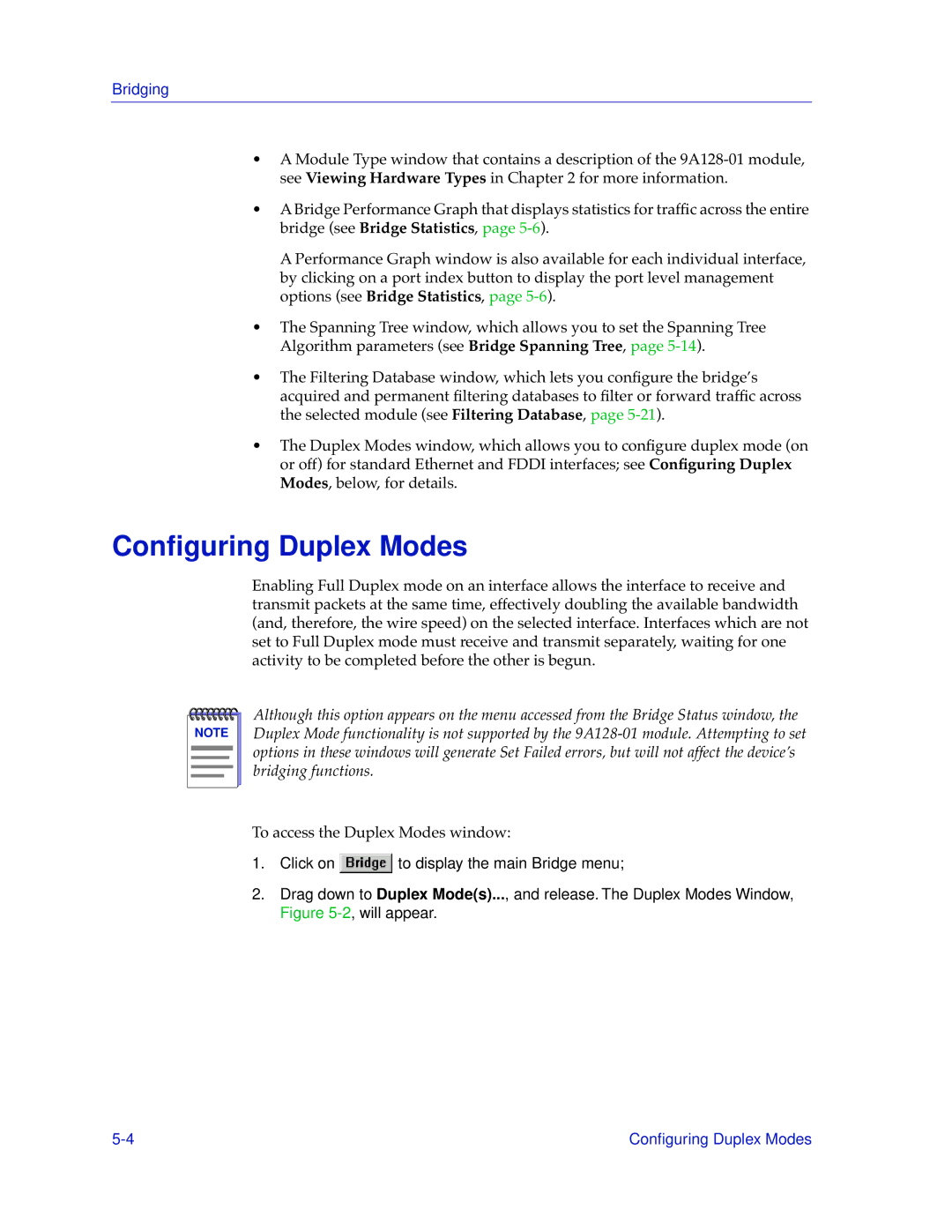
Bridging
•A Module Type window that contains a description of the
•A Bridge Performance Graph that displays statistics for traffic across the entire bridge (see Bridge Statistics, page
A Performance Graph window is also available for each individual interface, by clicking on a port index button to display the port level management options (see Bridge Statistics, page
•The Spanning Tree window, which allows you to set the Spanning Tree Algorithm parameters (see Bridge Spanning Tree, page
•The Filtering Database window, which lets you configure the bridge’s acquired and permanent filtering databases to filter or forward traffic across the selected module (see Filtering Database, page
•The Duplex Modes window, which allows you to configure duplex mode (on or off) for standard Ethernet and FDDI interfaces; see Configuring Duplex Modes, below, for details.
Configuring Duplex Modes
Enabling Full Duplex mode on an interface allows the interface to receive and transmit packets at the same time, effectively doubling the available bandwidth (and, therefore, the wire speed) on the selected interface. Interfaces which are not set to Full Duplex mode must receive and transmit separately, waiting for one activity to be completed before the other is begun.
NOTE |
Although this option appears on the menu accessed from the Bridge Status window, the Duplex Mode functionality is not supported by the
To access the Duplex Modes window:
1.Click on ![]() to display the main Bridge menu;
to display the main Bridge menu;
2.Drag down to Duplex Mode(s)..., and release. The Duplex Modes Window, Figure
Configuring Duplex Modes |
